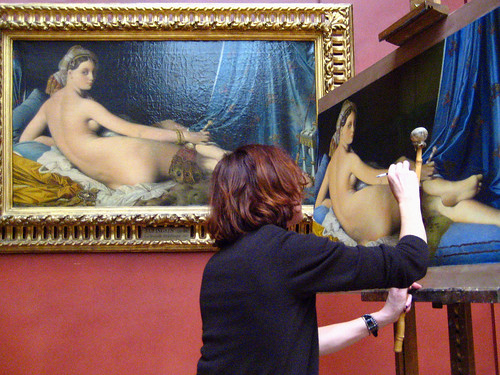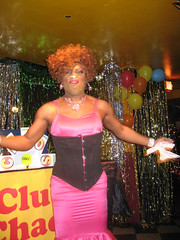14 years – Optimal copyright term

Copyright, originally uploaded by Andrea Cassani.
It is just as well that for Ptolemy III that there was no equivalents to the RIAA or the MPAA wandering around in 240 BC. He passed a decree that all visitors to the city were required to surrender all books and scrolls in their possession, these writings were copied by official scribes and placed into the Library of Alexandria. Can you imagine the amount of infringement notices that they would be issuing, though he might have argued that it was his teenage son, Ptolemy IV, who had issued the decree because he had a P2P (Pyramid to Pyramid) installed.
What ever machinations went on behind the scenes the result, the library, became the most famous in the world, so we have one example, albeit an old example about how copying other peoples work can have a positive effect on society.
Nowadays we have copyright laws and they are meant to preserve the right of the artist and motivate them to produce art by guaranteeing a means of generating an income once it gets released to the public, but not the public domain.
However the rules and laws have been so upsurdered that it is hardly the artists that are rolling in the money, they are given a bit, but it is these massive media organisations that thrash people all over the world with copy right law pulling down royalties. In the US it runs for nearly 70 years after the authors death. I have covered this in a previous blog entry: copyright and tipping.
It is an insane situation, the poor old patent world only get 25 year dibs on making an invention successful and exacting any royalties they can. The CD patent expire a few years ago but not before it made a lot of money for Philips which had a virtually exclusive ownership, with Sony, on the CD patent. Technical companies, somehow, which are limited to patent law and its 25 years limit mange to stay in business and turn a few meager billion or so a year.
So it was quite refreshing to see a paper claim that the optimal copyright term currently is 14 year. This takes in to consideration the amount of time it takes to pay the artist and pay off all the costs associated with producing the content. This figure apparently will go down as distribution channels move over to digital means.
 Imagine what this would mean, the top selling album of 1993, 14 years ago, was The Bodyguard – Whitney Houston. At the end of this year it would enter the public domain and you could re-record your own version and go on to be as big a star as Whitney was, piece of advice watch your yourself on the way down, she isn’t looking so crash hot anymore….
Imagine what this would mean, the top selling album of 1993, 14 years ago, was The Bodyguard – Whitney Houston. At the end of this year it would enter the public domain and you could re-record your own version and go on to be as big a star as Whitney was, piece of advice watch your yourself on the way down, she isn’t looking so crash hot anymore….
Here is the list of the other great songs and albums which would be getting freed up.
I don’t believe we will ever see a more sane application of copyright law in our life time, but the enforced revenue generated will dry up, meaning artist will have to move back to the old school way of earning some cash, get out there and play live. The live experience can’t be replicated.
